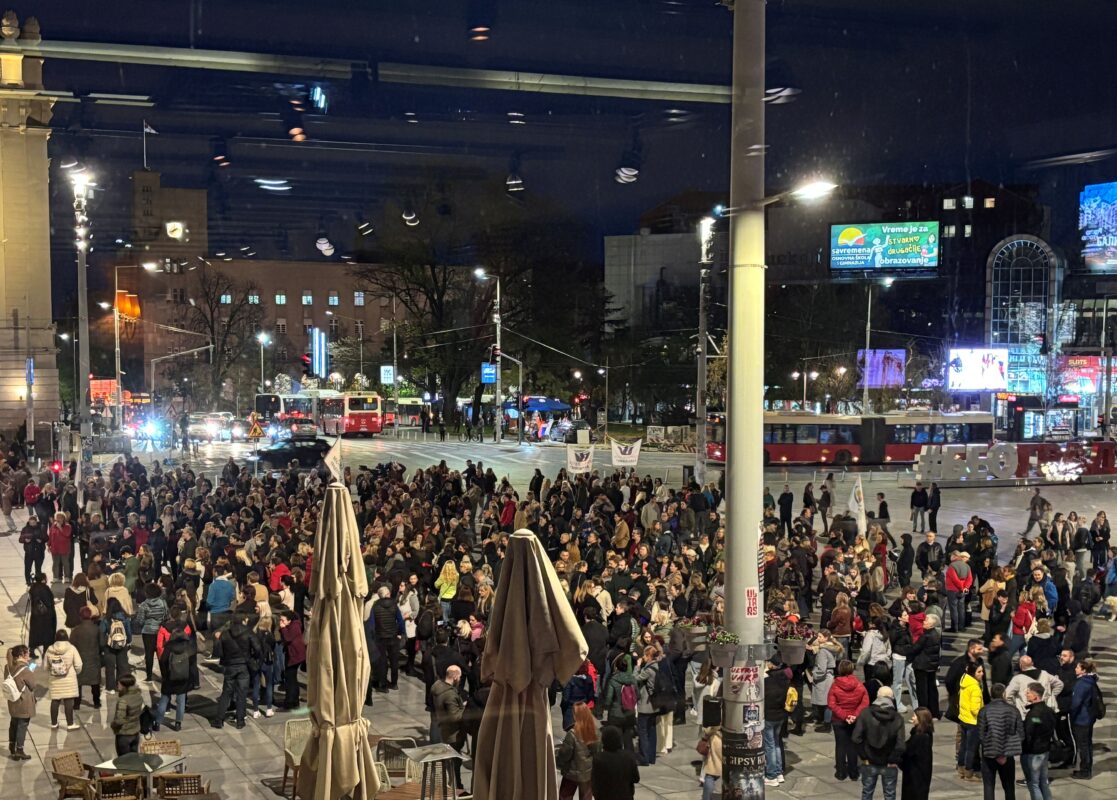Relaxed sovereignty
For the 51st time, the Wittener Tage für Neue Kammermusik will offer insights into contemporary composition. Barblina Meierhans from Burgau will be taking part.

With a "small pinch of humor", Meierhans looks at a special culture: in addition to football, bowling is very important in the Ruhr region. Once the work is done, people meet up, drink beer and schnapps, talk - and in between they throw balls at skittles. The pub with bowling alleys on Ruhrstrasse in Witten looks long since abandoned. Plaster is peeling from the walls, the furniture is worn, muted colors are reminiscent of the 1950s. Meierhans wanted to refer to the location "without nostalgia", to take a friendly look at the absurdities of "club activities". Born in Burgau/SG in 1981, she positioned a percussionist near the former beer bar. A viola, a trombone and a saxophone play directly at the lanes; the sound ambience is supported by voice recordings via loudspeakers.
Meierhans rightly did not compose stringent works. Rather, they are loosened tone or sound sequences or something like small rhythm studies that can be heard. This leaves room for intellectual and athletic freedom. In between, festival-goers can throw a ball themselves, reflect on times gone by, abandon themselves to atmospheres that ultimately seem pretty, but ultimately also too timid and reserved. Well then: It may be due to different mentalities. Here the pithy, mostly male-dominated Westphalian bowling, there a reflective but also reserved female artist from Switzerland - it's not an easy constellation.
Playing with inside and outside
Barblina Meierhans' station Those days are over ... is not the only one. Alternative venues away from the concert halls have become a tradition in Witten. Sometimes - just like at the Rümlingen Festival - it's a sound hike in the countryside, sometimes pieces are performed on a ferry or in a streetcar, sometimes festival director Harry Vogt orders sound installations for cellar vaults. When it comes to site-specific art, composer and multimedia specialist Manos Tsangaris is the right address. Tsangaris' tried and tested recipe is to play with the inside and outside. This year in Witten it looks like this: Inside, in a kiosk from the 1950s with glass almost all around, the audience is seated, with sound provided by a few instrumentalists and loudspeakers. Outside, near a crossroads, ordinary passers-by move about alongside obscure figures who may be real or - who knows? - ordered by Tsangaris. He describes his station as a "chamber play", which could also be called "audio cinema".
In any case, a speaker and an interviewer come from the sphere of art, whose words reach the packed kiosk by radio. Tsangaris has fine antennae. As with Meierhans, the music should not be too much in the foreground. So it is rather small atmospheric additions that the musicians play. Meanwhile, the speaker strolling outside muses on the subject of progress, while the interviewer rather intrusively asks passers-by in Witten about their taste in music. Rolling Stones are a "force", says one passer-by. He doesn't know Karlheinz Stockhausen.
A concert like a rush
What happens inside the concert halls probably remains hidden from the people of Witten. What a pity! Because everything that sounds this year is worth listening to, some of it sensationally good. The concert with works by Mikel Urquiza, Sasha J. Blondeau and Sara Glojnarić, all around the age of thirty, was outstanding. Urquiza sets Danish texts by Inger Christensen to music, involving the soprano in enchantingly intimate dialogs with either a muted trumpet, clarinet or percussion. Sasha J. Blondeau, born in Briançon, France in 1986, opts for a grainy, roughened sound study, while Croatian composer Glojnarić's approach is more rhythmic in nature. In a witty manner, she does not refer to the "might" Rolling Stones, but to drum intros by rock groups The Police, Nirvana and U2. The fact that this 50-minute concert works so well is partly due to the entertaining heterogeneity and striking compositional quality of the works, but also to the performers. Sarah Maria Sun (soprano), Marco Blaauw (trumpets), Carl Rosman (clarinets) and Dirk Rothbrust (percussion) play breathtakingly. Terms such as "variability", "perfection" or "sound sensitivity" hardly do justice to the incredible musicality of this quartet.
The Witten Festival for New Chamber Music is clearly on the right track. After years of tense, sophistical complexity and an obsessive search for new worlds of sound, there seems to be more looseness in play again - no mere unfocused laissez faire, but a pleasingly skillful sovereignty. Three days full of lasting experiences. What more could you want?








